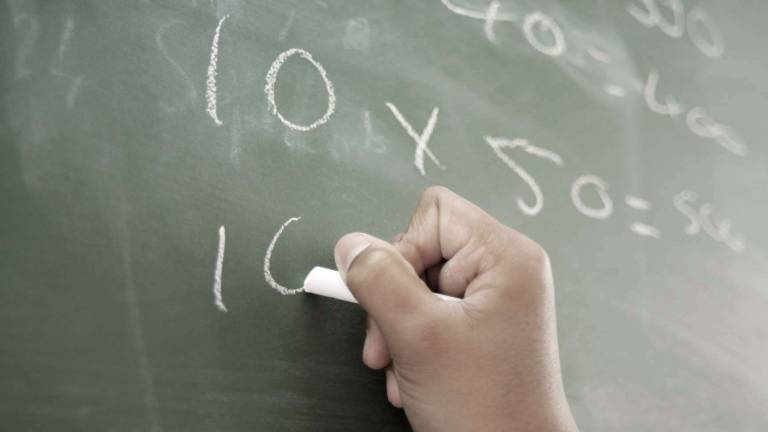Math difficulty may reflect problem in crucial learning system

Children differ substantially in their mathematical abilities. In fact, some children cannot routinely add or subtract, even after extensive schooling. Yet the causes of these problems are not fully understood. Now, two researchers, at Georgetown University Medical Center and Stanford University, have developed a theory of how developmental “math disability” occurs.
The article, in a special issue on reading and math in Frontiers in Psychology, proposes that math disability arises from abnormalities in brain areas supporting procedural memory, a learning and memory system critical in non-conscious skills, such as driving or grammar. It depends on a network of brain structures, including the basal ganglia and regions in the frontal and parietal lobes.
The procedural memory system has previously been implicated in other developmental disorders, such as dyslexia and developmental language disorder, say the study’s senior researcher, Michael T. Ullman, PhD, professor of neuroscience at Georgetown.
“Given that the development of math skills involves their automatization, it makes sense that the dysfunction of procedural memory could lead to math disability. In fact, aspects of math that tend to be automatized, such as arithmetic, are problematic in children with math disability," he said. "Moreover, since these children often also have dyslexia or developmental language disorder, the disorders may share causal mechanisms."
The study’s lead author, Tanya M. Evans, PhD, who specializes in reading and math, was a graduate student at Georgetown. Evans is currently a postdoctoral research fellow at Stanford University.
Ullman and Evans say that learning math likely depends on the brain’s two primary learning and memory systems — not just procedural memory, but also declarative memory, where conscious knowledge is learned.
We believe that learning math is likely similar to learning other skills,” Evans says. “For example, declarative memory may first be used to consciously learn how to drive, but then with practice driving gradually becomes automatized in procedural memory. However, for some children with math disability, procedural memory may not be working well, so math skills are not automatized.”
Evidence suggests that when procedural memory is impaired, children may have math disability, dyslexia, or developmental language disorder, Ullman said.
“We believe that understanding the role of memory systems in these disorders should lead to diagnostic advances and possible targets for interventions," he said.
Source: Georgetown University Medical Center: gumc.georgetown.edu